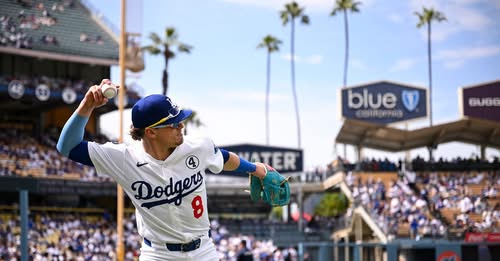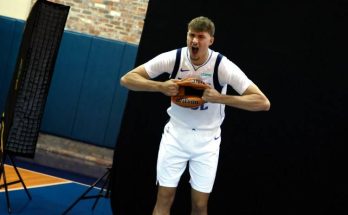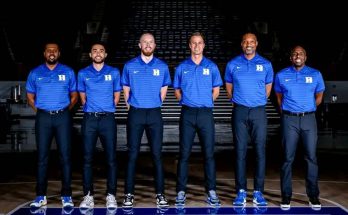Kiké Hernández is back in the lineup today and finds himself once again stationed at third base, a position he has played multiple times throughout his career despite not being a natural third baseman. That, in itself, says a lot about the type of player he is and why teams, especially the Dodgers, have found his presence invaluable over the years. Few players in Major League Baseball embody versatility in the way Hernández does. From the moment he broke into the league to his current role, he has become synonymous with adaptability, consistency, and an eagerness to do whatever it takes to help his team win. This season, just like so many others before it, has been a showcase of that rare ability to play anywhere, to fill gaps when injuries strike, and to remain a steady presence no matter what challenges arise.
The thing about Hernández is that his value doesn’t always show up in the traditional box score. Yes, he has moments with the bat where he delivers clutch hits, and yes, he has produced solid numbers at different points in his career, but his biggest contributions come in the form of what coaches call “intangibles.” The ability to move seamlessly between second base, shortstop, third base, and the outfield is not something many players can do at a high level. Some utility players can provide coverage in an emergency, but Hernández offers far more than just a backup option. He plays each position with professionalism and confidence, often giving his managers the ability to rest other players or craft lineups based on matchups. That kind of flexibility is a luxury, especially on contending teams that need every small advantage they can get over the course of a long season.
This year has been another reminder of why he is so valued. Injuries across the roster have forced managers to shuffle the defensive alignment frequently, and Hernández has been the glue in those transitions. Slotting him in at third base today is just another example. The Dodgers, like many teams, know that Hernández is always ready. He doesn’t complain about being moved around, he doesn’t ask to stick in one role, and he doesn’t show signs of being rattled by constant change. In fact, it seems to energize him. He thrives on unpredictability, embracing the idea that his name might be penciled into any spot on the lineup card at any given time. That mindset separates him from others who might prefer stability and routine.
To understand the full impact of his versatility, one must look at the bigger picture of his career. Hernández was never projected to be a superstar or a franchise cornerstone. He wasn’t a can’t-miss prospect, nor was he the centerpiece of blockbuster trades. What he has become, though, is every manager’s dream—a player who can extend the depth of the roster by offering options at multiple spots. His journey has been one of hard work, grit, and a willingness to learn. Over the years, he has refined his defensive skills to the point where his glove plays in almost any scenario. Whether he’s fielding sharp grounders at third, turning double plays at second, covering the expansive ground in center field, or making strong throws from left field, Hernández provides competent, and often stellar, defense. That reliability changes how teams approach roster construction, as one player essentially gives them the coverage of two or three.
This season, as with previous ones, his bat has experienced both highs and lows, but that doesn’t diminish his importance. Hernández is not always expected to be the offensive centerpiece. Instead, his offensive contributions are often viewed as a bonus. When he’s swinging the bat well, it’s a game-changer, because he can lengthen the lineup and provide a spark in key situations. Over the years, fans have seen him deliver some of the most memorable postseason moments, proving that he’s not just a placeholder but someone who can shine when the lights are brightest. His knack for stepping up in October is one of the reasons Dodgers fans, in particular, hold him in such high regard. That reputation carries into every season—he’s not just versatile, he’s clutch.
It’s easy to overlook players like Hernández in an era where stars dominate headlines and fans crave the spectacle of 40-home-run sluggers or pitchers with triple-digit fastballs. But baseball has always been a game that requires depth, balance, and unsung heroes. Hernández embodies the idea that winning isn’t just about the superstar at the top of the roster, but about the role players who fill in the gaps and provide stability through 162 games. Without them, no team can withstand the inevitable injuries, slumps, or grueling stretches of travel that define the MLB season. Hernández doesn’t just fill a role; he sets the standard for what a utility player can be.
Another fascinating aspect of his career is the way he embraces the culture and energy of his teams. He is known for his infectious personality, his ability to keep a clubhouse loose, and his natural charisma. Those qualities matter more than fans often realize. Baseball is a grind, and the mental toll of the season can weigh heavily on players. Having someone like Hernández around to lighten the mood, crack a joke, or lift teammates after a tough game makes a real difference. His leadership may not always be traditional, but it is effective. Younger players often gravitate toward him because of his authenticity and his example of what it means to be a professional.
When you look back on Hernández’s journey, you can see the blueprint of a player who made himself indispensable through persistence and adaptability. He has carved out a long career by refusing to be defined by limitations. Some players might resist the label of “utility player,” but Hernández has embraced it and elevated it into something more meaningful. For him, versatility is not a fallback; it’s his calling card. Every season, including this one, has provided further proof that his approach works. Whether he’s needed at third base, shortstop, or the outfield, he shows up and does the job.
His presence in the lineup today is just another chapter in the story of a player who refuses to be confined to one box. It’s not surprising to see him at third base—it’s expected. By now, fans understand that Hernández’s name can appear anywhere on the card, and it won’t raise an eyebrow. That normalcy is remarkable. It speaks to how natural his adaptability has become. Most players moving between positions might raise concerns about defensive lapses or chemistry issues, but with Hernández, it’s seamless. That reliability creates a level of trust between him and the coaching staff that cannot be overstated. Managers know they can count on him, and that kind of trust is earned over years of proving oneself in high-pressure situations.
Of course, his role at third base today also highlights the current state of the Dodgers’ roster. Injuries, rest days, or matchups may dictate changes, but Hernández is always the solution. He allows the team to maintain competitiveness no matter the circumstances. That is the ultimate compliment to a player like him—he represents security. In a sport where unpredictability reigns, having that kind of security blanket is a huge advantage.
Looking ahead, it’s worth asking how much longer Hernández can maintain this level of adaptability. Players age, reflexes slow, and the wear and tear of constant switching can take a toll. Yet, given the way he prepares and the pride he takes in his craft, it’s likely he will continue to provide value for years to come. Even if his bat cools down or his range decreases slightly, his knowledge of multiple positions, combined with his instincts and leadership, ensures he will always have a place on a roster. His career has already proven that he’s built for longevity, not just flashes of brilliance.
Fans who watch him play today at third base might not think much of it. To them, it’s just another game, another lineup decision, another day of Hernández filling in. But the truth is, each of these moments builds the legacy of one of the most unique and dependable players of his generation. Hernández is more than just a utility man; he’s the embodiment of baseball’s enduring truth that every role matters, and that championships are built not just on stars, but on the steady contributions of players like him.
So when he takes the field today at third base, remember that it’s not a coincidence or a fluke—it’s the continuation of a career defined by extraordinary versatility. It’s another example of why managers keep trusting him, why teammates respect him, and why fans continue to appreciate him. This season, like so many before it, has reinforced the same lesson: Kiké Hernández is one of the most valuable pieces in baseball, not because of the traditional numbers, but because he can do what almost no one else can—play anywhere, anytime, and always deliver exactly what his team needs. His story is proof that in baseball, versatility is not just an asset, it’s a legacy.



